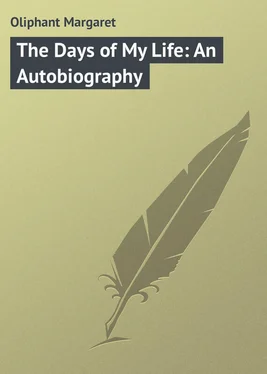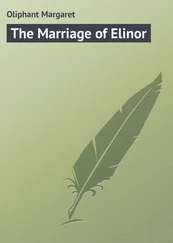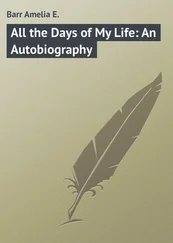Margaret Oliphant - The Days of My Life - An Autobiography
Здесь есть возможность читать онлайн «Margaret Oliphant - The Days of My Life - An Autobiography» — ознакомительный отрывок электронной книги совершенно бесплатно, а после прочтения отрывка купить полную версию. В некоторых случаях можно слушать аудио, скачать через торрент в формате fb2 и присутствует краткое содержание. ISBN: , Жанр: foreign_prose, на английском языке. Описание произведения, (предисловие) а так же отзывы посетителей доступны на портале библиотеки ЛибКат.
- Название:The Days of My Life: An Autobiography
- Автор:
- Жанр:
- Год:неизвестен
- ISBN:http://www.gutenberg.org/ebooks/43404
- Рейтинг книги:5 / 5. Голосов: 1
-
Избранное:Добавить в избранное
- Отзывы:
-
Ваша оценка:
- 100
- 1
- 2
- 3
- 4
- 5
The Days of My Life: An Autobiography: краткое содержание, описание и аннотация
Предлагаем к чтению аннотацию, описание, краткое содержание или предисловие (зависит от того, что написал сам автор книги «The Days of My Life: An Autobiography»). Если вы не нашли необходимую информацию о книге — напишите в комментариях, мы постараемся отыскать её.
The Days of My Life: An Autobiography — читать онлайн ознакомительный отрывок
Ниже представлен текст книги, разбитый по страницам. Система сохранения места последней прочитанной страницы, позволяет с удобством читать онлайн бесплатно книгу «The Days of My Life: An Autobiography», без необходимости каждый раз заново искать на чём Вы остановились. Поставьте закладку, и сможете в любой момент перейти на страницу, на которой закончили чтение.
Интервал:
Закладка:
“I saw him, but I did not speak to him – nor even hear him speak,” said I.
Another pause – what were we to say? “Do you like his books?” said the young man.
“I do not care for any books but novels,” said I bluntly. I am afraid I was not above a wish to shock and horrify him.
Mr. Edgar laughed a little, and his color rose. I am sure I did what I could to give him an unfavorable impression of me, in this our first interview. He said —
“You are very honest, Miss Southcote.”
I cannot tell how it was either that he presumed so far, or that I suspected it – but I certainly did think he had a great mind to say Hester, instead of Miss Southcote, and only checked himself by an effort. It was very strange – I felt haughty immediately, but I scarcely felt displeased; but I am sure there was a consciousness in the deep color that rose upon his face, and in my tone as I answered him.
“I am only telling the truth,” said I. “I cannot help it – when it is only thinking about a thing, I would rather think myself. A story is a different matter; I am very sorry for my dulness, but I think there are no really pleasant books except those which tell a story.”
“Even that limit reaches to something more than novels,” said Mr. Edgar; “there is history, and biography besides.”
“Yes – but then I only care for them for the mere story’s sake,” said I, “and not because they are true or good, or for any better reason. I suppose a man’s life is often more like a novel than like anything else – only, perhaps, not so well arranged. The misfortunes do not come in so conveniently, and neither do the pleasures. I think reading a novel is almost next best to having something to do.”
“I am afraid some of us think it a superior good, now and then,” said my companion.
And so our talk came to an abrupt conclusion again. It was my turn to make a new beginning, and I could not. I did not like to ask him any questions about himself – which was his college, or if he was a Cambridgeshire man, or any of the things I wished to know; and, as I glanced up at his thoughtful face, I once more fell a-pondering what he could be thinking of. I do not recollect that I had ever had much curiosity about other people’s thoughts before. My father always had a book before him, which he read, or made a pretence of reading, and my father’s meditations were sacred to me. I guessed at them with reverence, but it would have been sacrilege to inquire into them. As my established right, I claimed to know what Alice was thinking of, and did not need to wonder; but here, with the full charm of a mystery which I could not inquire into, came back upon me my first curiosity about this stranger. Either his face did express what was in his mind, or I was not acquainted with its language. What was he thinking of? – what did he generally think of? I wondered over his thoughts so much that I had no leisure to think of himself who was standing beside me, though still I was strongly aware of every movement he made.
Just then I heard my father and Mr. Osborne ascending the stairs. I was half sorry, and yet altogether glad that they were coming; and I was a little curious how my father would receive my new acquaintance. My father received him with stately politeness, distant but not ungracious, and as Mr. Osborne and he took their usual places, they began their ordinary conversation. When Mr. Edgar joined in it, I discovered from what they said that he was a student of Corpus, a close neighbor, and it amused me a little to watch the three gentlemen as they talked; of course, my father and Mr. Osborne were in the daily habit of talking, without any greater reference to me than if I had been a very little girl with a doll and a pinafore. I was not intellectual. I did not care for their discussions about books – and I expected no share in their conversation, nor wished it. I was quite pleased to sit by, with the ring of their voices in my ear, doing my needlework. I always worked at something, during these times; and thinking my own thoughts. But Mr. Edgar, who was unused to this, and perhaps did not think me quite so little a girl as my father and his friend did, was puzzled and disconcerted, as I saw, by my exclusion from the stream of talk. I had a certain pleasure in showing him how much a matter of course this was. I had never known a young man of rank and age before, but I had a perverse delight in making myself appear something different to what I was. I turned half aside to the window, and hemmed as only demure little girls can hem, when grave talk is going on over their heads. But I saw very well how uncertainly he was regarding me – how puzzled he was that I should be left out of the conversation, and how he wanted to be polite and amiable, and draw me in.
“How is the garden, Hester?” said Mr. Osborne at last, rising and coming towards me with a subject adapted to the capacity of the little girl, “what! blossom already on that little apple tree – what a sturdy little fellow it is! Now, Southcote, be honest – how many colds has Hester taken this winter in consequence of your trap for wet feet – that grass crotchet of yours?”
“Hester is a sensible girl in some respects,” said my father, “she never takes cold – and your argument against my grass is antiquated and feeble. I will not plan my garden by your advice, Osborne.”
“My advice is always to be depended on,” said Mr. Osborne; “you have taken it in more important matters, and I think I know some matters in which it would be very well you took it again.”
“That is my affair,” said my father coldly. “Advice is a dangerous gift, Mr. Edgar,” he continued, with a somewhat sarcastic smile, “every man who has the faculty thinks himself infallible – and when you bring yourself ill fortune by following good advice and friendly counsel, you are in a dangerous dilemma – to hide your failure or to lose your friend.”
“What do you mean, Southcote?” cried Mr. Osborne with a look of great surprise and almost anxiety in his face.
“Nothing but my old opinion,” said my father, “that every man must stand on his own ground, consult his own discretion, and build only upon his own merits. I have no faith in the kindness and compassion of friends; a kind act, done with the noblest good intentions, may make a man’s life miserable. No, no, justice, justice – what you deserve and no galling boon of pity – all is dishonest and unsatisfactory but this.”
Mr. Edgar and Mr. Osborne exchanged a slight rapid glance, and I saw the color rise over the young man’s broad white brow; but I was too much concerned and moved by what my father said to observe the others much. His friend even did not comprehend him, I alone knew what he referred to. I alone could enter into his feelings, and understand how deep the iron had gone into his soul.
After that Mr. Edgar was very silent, and listened to what was said, rather than took part in it – so that when Mr. Osborne spoke of going away, the young man had subsided into a chair, as humble and unconsidered as I was. He did not come to talk to me – he sat quite silent looking on – looking round at the pictures sometimes, with a quiet sweep of his eyes, often looking at the speakers, and sometimes examining curiously my work-table. I was sitting close by it, but he never looked at me nor did I look at him.
When they were going away, my father, to my great surprise, bade him return. “Come again, I will be glad to see you,” said my father. I looked up almost with consternation, and Mr. Edgar, though he looked gratified, was surprised too, I could see – however, he answered readily, and they went away.
My father did not leave me immediately after they were gone; he walked up and down the room for a while, pausing sometimes to look at the ivy leaves which waved and rustled as much as the fine tendrils clasping the wall would let them, in the fresh spring breeze. My father seemed to have a certain sympathy with these clusters of ivy – he always went to that window in preference to this one where I was seated, and which looked into the free and luxuriant garden. After standing there for some time, he suddenly turned and addressed me.
Читать дальшеИнтервал:
Закладка:
Похожие книги на «The Days of My Life: An Autobiography»
Представляем Вашему вниманию похожие книги на «The Days of My Life: An Autobiography» списком для выбора. Мы отобрали схожую по названию и смыслу литературу в надежде предоставить читателям больше вариантов отыскать новые, интересные, ещё непрочитанные произведения.
Обсуждение, отзывы о книге «The Days of My Life: An Autobiography» и просто собственные мнения читателей. Оставьте ваши комментарии, напишите, что Вы думаете о произведении, его смысле или главных героях. Укажите что конкретно понравилось, а что нет, и почему Вы так считаете.












